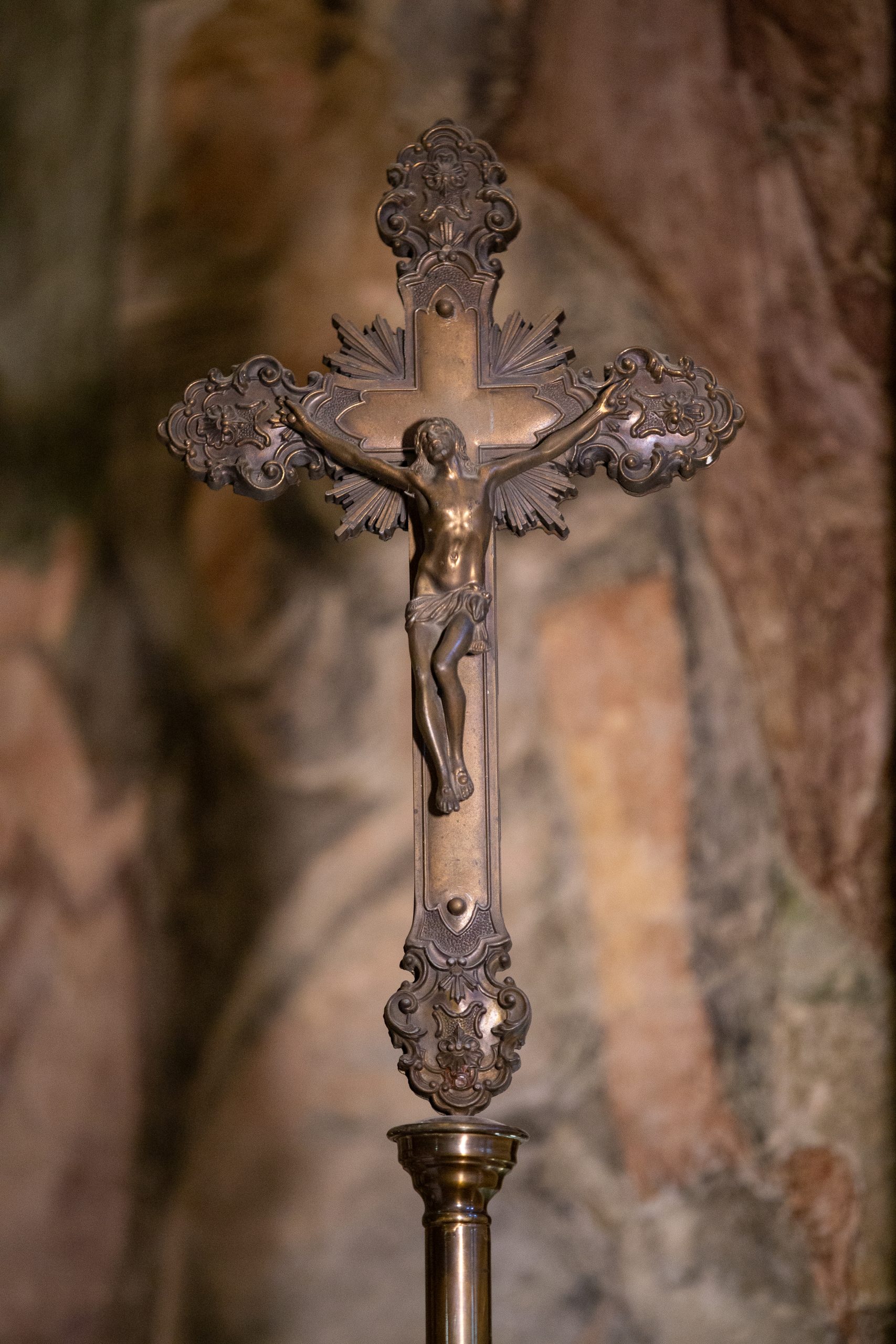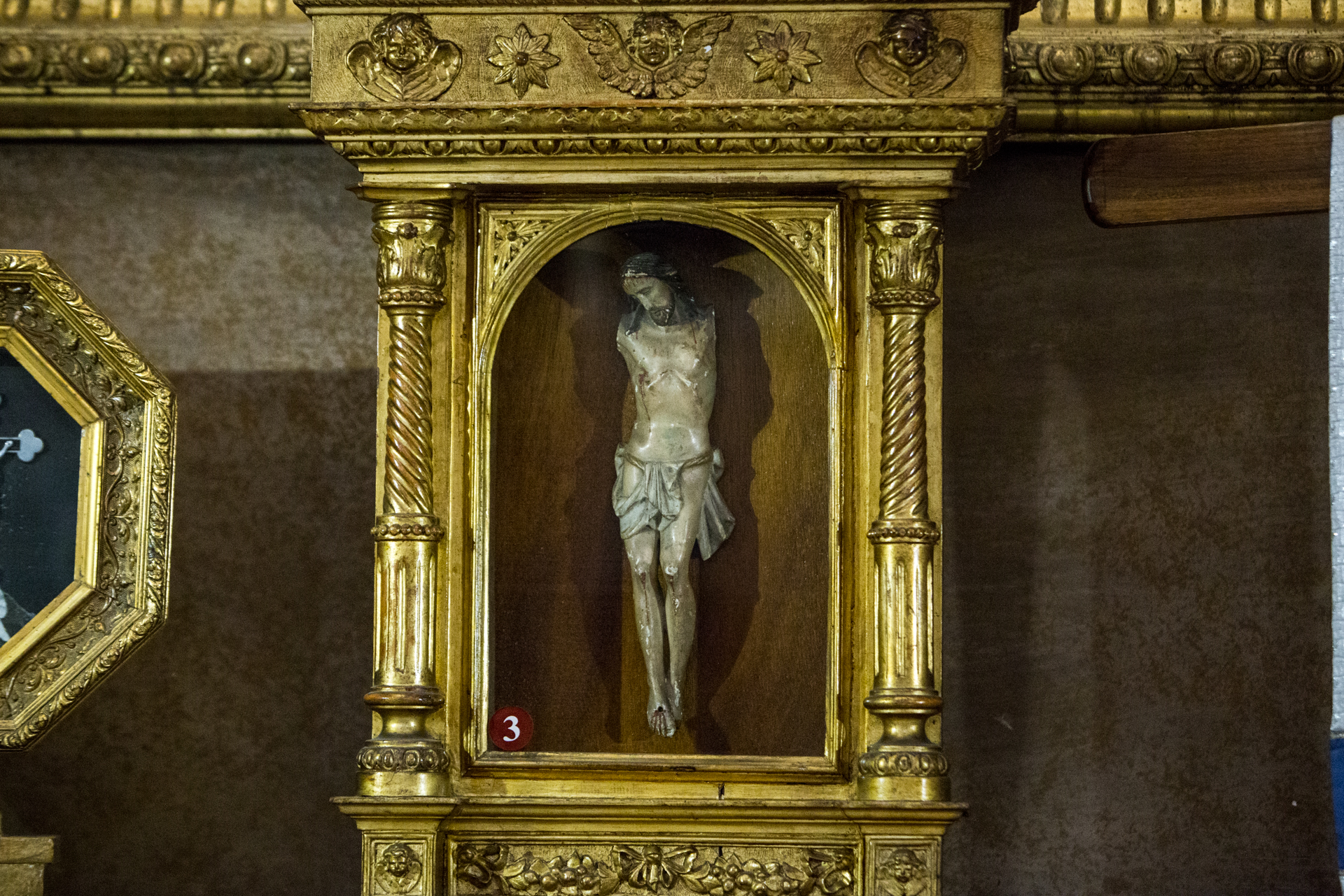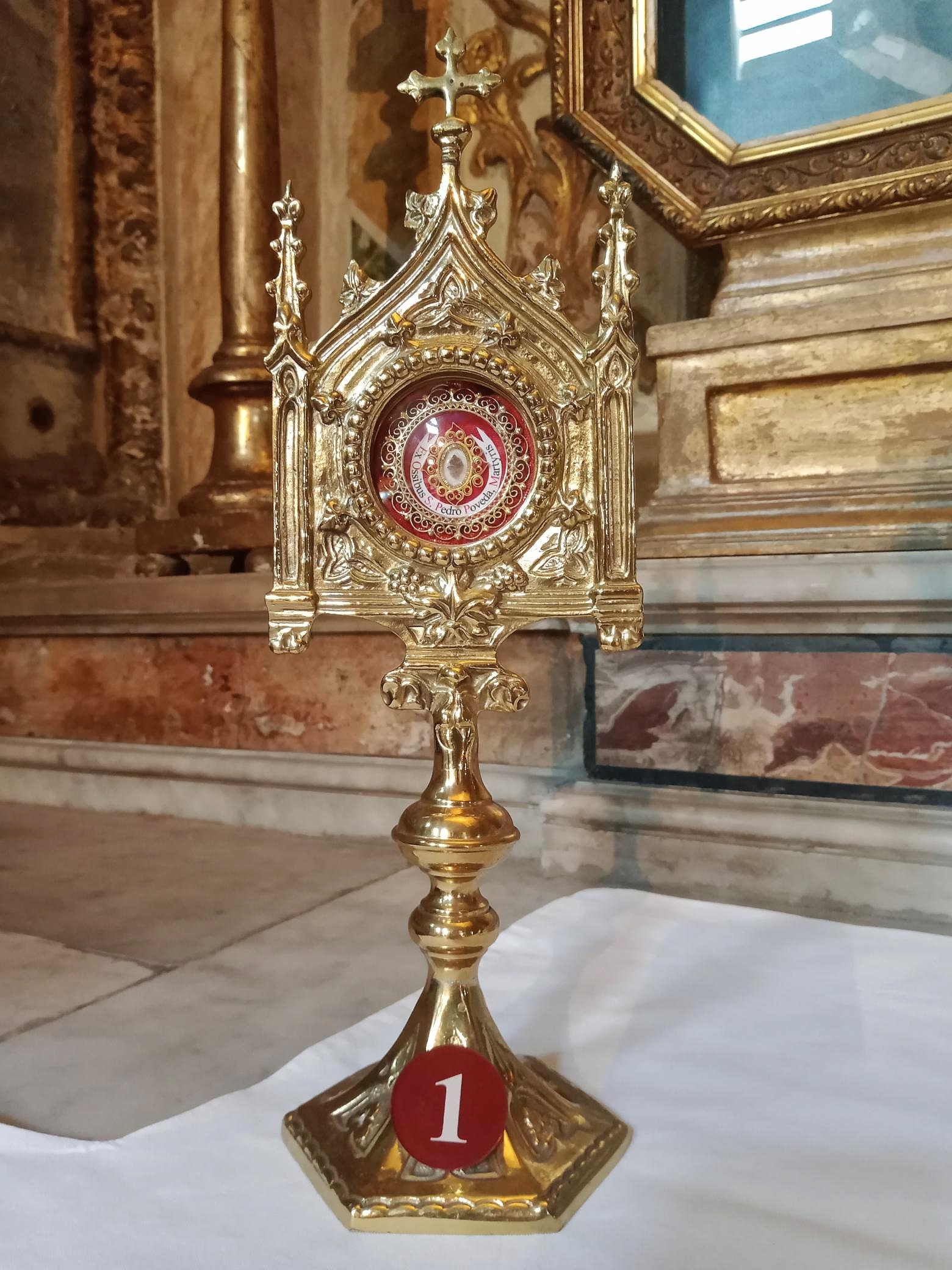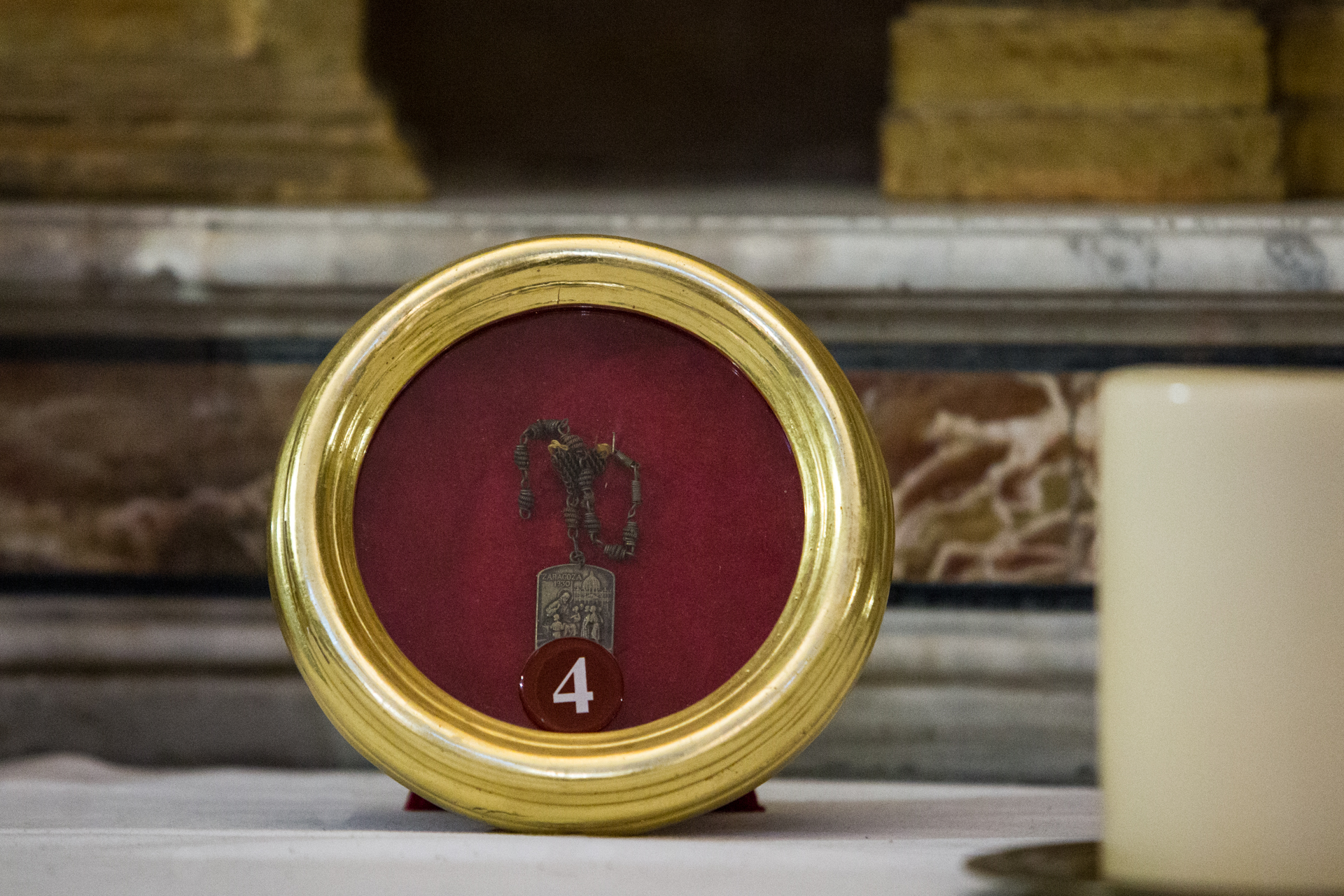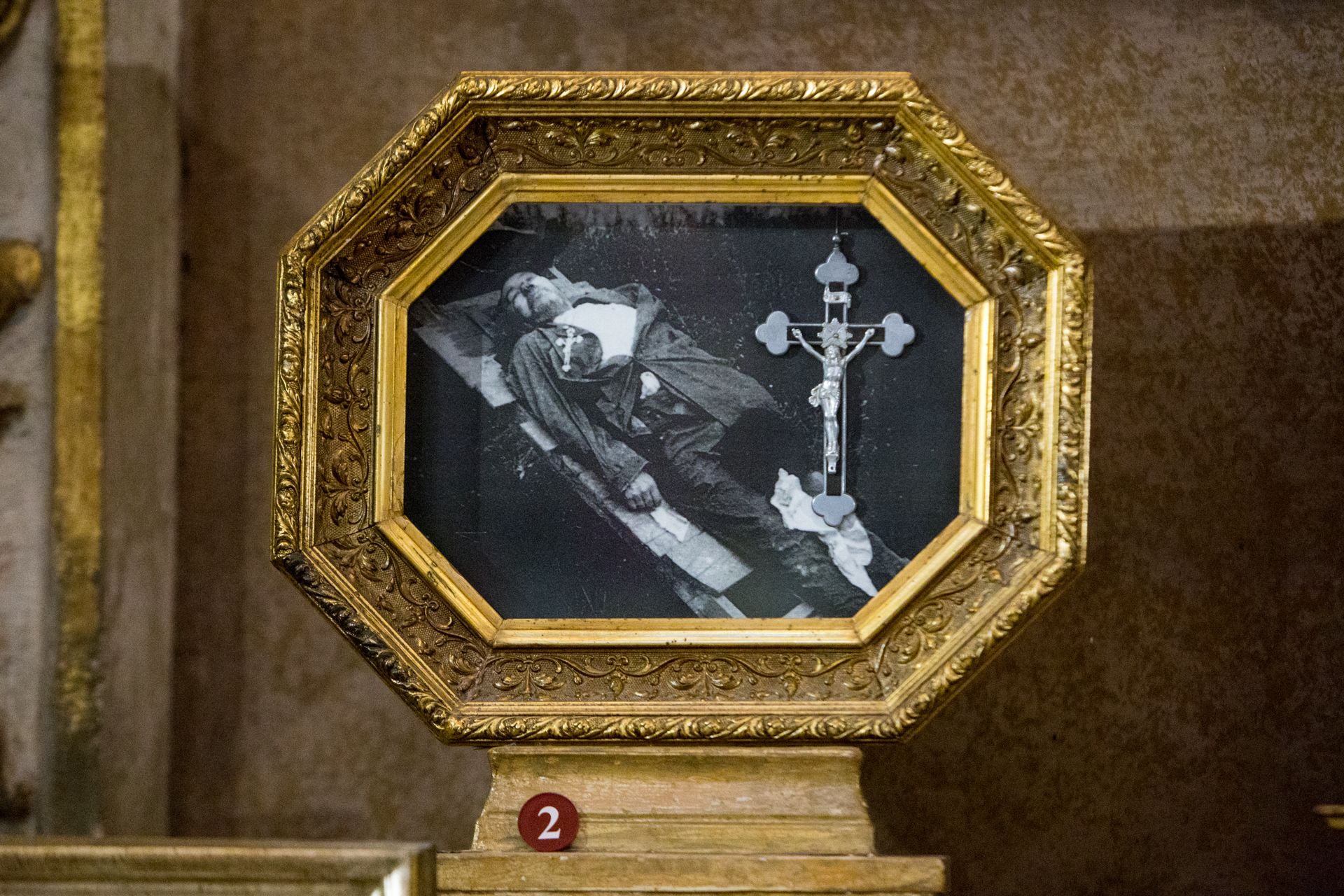Relic of St. Pedro Poveda, Spanish priest killed in Madrid on July 28, 1936
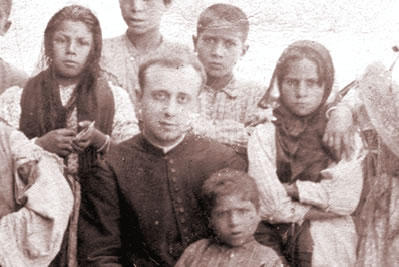
St. Pedro Poveda, presbyter, founder of the Teresian Institution, martyr, was proclaimed a saint on May 4, 2003.
He was born in Linares (Jaén, Spain) on December 3, 1874, and was baptized a week later. He received a deeply Christian upbringing and was open to different currents of thought. From his childhood he felt attracted to the priesthood and at age 15 he was cast in the Seminary of Jaén. He continued his studies in Guadix (Granada), where he was ordained a presbyter in 1897 and where he exercised various ecclesiastical duties. From 1902 he worked for the human and Christian promotion of the marginalized population of the caves surrounding Guadix. Here, under the protection of Our Lady of Grace, he opened schools for children and workshops for adults.
In 1906, he was appointed canon of the Basilica of Our Lady of Covadonga where, along with prayer and study, he took care of the Christian formation of pilgrims. Attentive to the problems of his time, he was able to perceive with singular clairvoyance the social dimension of education and the incidence in it of the difficult relationship between faith and science. Willing to “begin by doing,” he published articles and pamphlets in which he boldly proposed a program for the training and coordination of Catholic teachers. Beginning in 1911 he created Academies, Pedagogical Centers and journals, and founded the Teresian Institution. To give impetus to this Work, which was growing in people and activities, in 1913 he moved to Jaén, where he was canon of the Cathedral, professor of the Seminary and Magisterial Schools and was an active collaborator in the city’s various initiatives.
In 1917 the Teresian Institution was recognized civilly and received diocesan ecclesiastical approval as a lay association. In 1924 it received pontifical approval in perpetuity as a Pious Union of the Faithful, with different modes of membership. It placed itself under the protection of St. Teresa of Jesus, proposed the lifestyle of the early Christians and identified education and culture as the specific areas of its mission. Appointed chaplain to the royal family, in 1921 he fixed his residence in Madrid, where he exercised intense evangelizing activities and consolidated the Teresian Institution, which a few years later would reach Chile and Italy.
Recognized as a man of boldness, prudence and concord, of proven virtue and counsel, with heroic charity, dialoguing and profoundly humble, he was a spiritual orientation for many, supported works and collaborated actively with Catholic Action and various associations and projects.
He was killed in Madrid, because of his faith, at dawn on July 28, 1936. “I am a priest of Christ,” he had declared the previous day to those leading him to martyrdom.
His spirituality, Christocentric, Marian and ecclesial, can be summarized in one of his writings from 1915, which oriented his entire life and activity: “The Incarnation well understood, the person of Christ, his nature and his life, to those who understand them, give the sure norm to arrive at being holy, of the truest holiness, remaining at the same time human, of true humanism.”
On Oct. 20, 2008, during a Liturgy of the Word presided over by Cardinal Antonio María Rouco Varela, Archbishop of Madrid, the breviary that belonged to St. Pedro Poveda was handed over to the Shrine of the Martyrs of the Faith.
MEDITATION OF SAINT PEDRO POVEDA WRITTEN ON APRIL 14, 1935
“Learn from me who am meek” (Mt 11:29). Says the great Father St. Augustine that our Lord never told us to learn from him to create worlds or to perform miracles, but his categorical and peremptory command was this, “Learn from me to be meek.”
Blessed meekness, blessed invincible virtue, as St. John Chrysostom says. This, coming from him, what strength it has! St. John Climacus says that meekness chains hell, gives strength to rule the religious family, and support to obedience, is the crown of the saints, the peace of conscience.
Another holy Father, speaking of meekness, calls it: A certain ability of the spirit, by virtue of which we are equanimous, both when we are honored and when we are reviled, which gives us the strength to pray for those who make us suffer. The extent of the strength of the heart is proportional to that of meekness, says another holy Father.
Why am I writing these notes on meekness? […] Because I believe that the present moment demands, in a special way, the exercise of this virtue. Because I consider it a decisive weapon for the victory of God’s cause. Because injustice, rebellion, confusion, and contempt for holy things provoke wrath and make zeal bitter and bitter. Because, infected by the current nervousness, we want good, but we put ourselves on the same level as those who work evil, at least in the way we proceed. Because we forget the present situation of young people and, at times, use counterproductive means to guide and train them. Because I want you to meditate deeply on this virtue and ask our Lord to be your teacher. I would have added one more reason, but I do not add it on paper, I say it verbally: it is my desire to acquire meekness.
If we prefer roughness, reticence, harshness, wrath, impatience, brusque manners, insolence, it is not because we are convinced that we are doing a greater good to our neighbor; it is because in this way we satisfy our passions, self-love, pride; because this way is more comfortable, easier, more pleasant to us […].
There is no illusion: meekness, affability, gentleness are the virtues that conquer the world. If you tell me that it is very difficult to be this way; that the habit of meekness costs a lot; that gentleness, suavity and affability presuppose a complete victory over oneself, demand continuous vigilance and constant sacrifice, I will tell you that it is true, that indeed it is so; however, none of this is impossible with God’s grace and our cooperation…Do you know how the martyrs triumphed? By gentleness and meekness…Reserve for yourself the harshness and be with others affable, good, all for God and his glory.”
